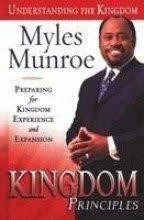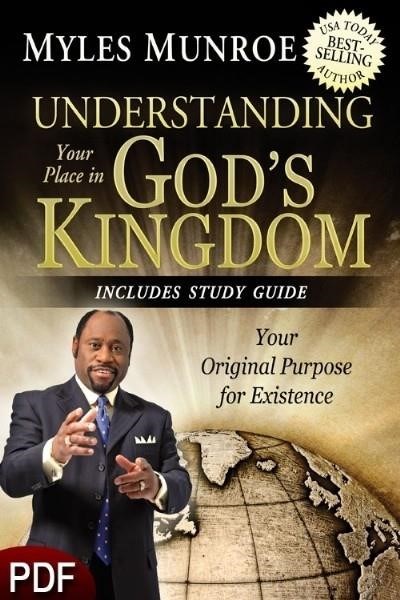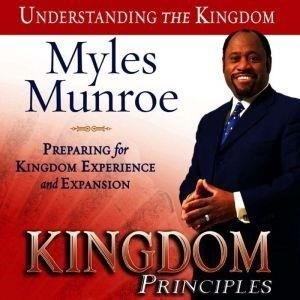
Myles Munroe’s Kingdom Principles⁚ An Overview
This overview explores Myles Munroe’s teachings on kingdom principles, drawing from his extensive work on the subject. His framework emphasizes God’s sovereignty, provision for citizens, and the maintenance of royal standing. Understanding these principles is crucial for effective kingdom living and expansion.
The Core Concept of Kingdom
Myles Munroe’s understanding of a kingdom centers on the governing influence of a king over his territory. This influence isn’t merely territorial; it’s a pervasive impact shaping culture, values, morals, and lifestyle. The king’s personal will, purpose, and intent become the defining characteristics of the kingdom’s citizens. Munroe emphasizes that a true kingdom reflects the king’s desires and nature, creating a society aligned with his vision. This concept moves beyond a simple geographical area to encompass a holistic societal structure governed by the king’s principles and character. The core isn’t just land, but a unified people living under a shared identity and purpose dictated by their sovereign.
This contrasts sharply with worldly power structures. Munroe’s perspective highlights the spiritual nature of a true kingdom, where the king’s authority isn’t based on force but on a divinely ordained mandate and the willing obedience of his subjects. Therefore, the core of the kingdom lies in the transformative power of the king’s influence, shaping the very essence of the people and their societal structures to reflect his divine character and purpose. This necessitates a thorough understanding of the king’s will and its implementation within the kingdom’s framework.
Defining Kingdom Principles⁚ A Munroe Perspective
For Myles Munroe, kingdom principles aren’t arbitrary rules but inherent characteristics reflecting the nature of the king and his governance. They aren’t merely suggestions but foundational elements shaping the kingdom’s identity and function. These principles aren’t static doctrines; they are dynamic forces that actively shape the kingdom’s culture and the lives of its citizens. Understanding these principles is paramount to comprehending the kingdom’s purpose and experiencing its blessings. Munroe’s teachings emphasize the practical application of these principles, urging believers to live out their implications in daily life. He highlights the interconnectedness of these principles, showing how they work together to achieve the kingdom’s overall goal.
He doesn’t present these principles as abstract concepts, but as integral aspects of a living, functioning kingdom. This perspective emphasizes the active participation of citizens in upholding and embodying these principles. It’s not enough to simply know them; believers must actively live them out, reflecting the king’s character and contributing to the kingdom’s flourishing. This active engagement is a key element of Munroe’s perspective, transforming passive knowledge into a dynamic, transformative force within the believer’s life and the community at large. The principles are not merely theoretical; they are practical guidelines for living a life pleasing to God and contributing to the advancement of His kingdom.
The Principle of Authority⁚ God as Sovereign
Central to Munroe’s theology is the absolute authority of God. This isn’t a tyrannical rule but a benevolent sovereignty that establishes order and purpose. God’s authority isn’t merely a concept; it’s the foundation upon which the entire kingdom rests. Understanding this principle is key to comprehending the dynamics of the kingdom and our role within it. It’s not about blind obedience but about recognizing God’s rightful place as the ultimate ruler and aligning our lives with His will. This understanding shapes our perspective on leadership, submission, and responsibility within the kingdom.
Munroe emphasizes that God’s authority isn’t oppressive but protective and guiding. It provides structure and direction, leading to a life of purpose and fulfillment. Recognizing God’s authority doesn’t diminish our freedom but enhances it, freeing us from the constraints of self-will and enabling us to live lives aligned with His perfect plan; This principle isn’t about control but about empowerment, guiding us towards a life of purpose and meaning. It’s not about fear but about trust, recognizing that God’s authority is exercised for our ultimate good and the flourishing of His kingdom. This understanding is fundamental to navigating the challenges and uncertainties of life, providing a secure foundation for our journey.
The Principle of Provision⁚ Meeting the Needs of Citizens
A core tenet of Munroe’s kingdom principles is the concept of provision. A true kingdom, reflecting God’s nature, actively cares for its citizens’ needs – not just spiritual, but also physical and emotional. This provision isn’t merely charitable giving; it’s a reflection of the king’s commitment to his subjects’ well-being. It signifies a holistic approach to governance, prioritizing the flourishing of every individual within the kingdom structure. This isn’t passive; it requires intentional action and a commitment to resourcefulness. In this context, resources encompass not just material goods but also opportunities for growth, education, and development.
Munroe highlights that provision is integral to maintaining the integrity and stability of the kingdom. When the needs of the citizens are met, loyalty and trust flourish. This creates a strong foundation for collective progress and ensures the kingdom’s continued prosperity. Conversely, neglect of these needs can lead to unrest and instability. The principle isn’t solely about material wealth but about ensuring that every citizen has access to the resources they need to thrive. It underscores the interconnectedness of the community and emphasizes the responsibility of every member to contribute to the overall well-being of the kingdom.
The Principle of Reputation⁚ Maintaining Royal Standing
In Myles Munroe’s framework, a kingdom’s reputation is paramount, directly tied to the king’s character and actions. Maintaining royal standing isn’t about superficial image; it’s about consistent integrity and ethical conduct. The king’s reputation reflects the kingdom’s values and influences its internal cohesion and external perception. A strong reputation attracts loyalty, trust, and respect, both from within the kingdom and from outside entities. This principle emphasizes the importance of responsible leadership and the long-term consequences of decisions made by those in power.
Munroe likely stressed that a kingdom’s reputation is built on fulfilling promises and consistently demonstrating fairness and justice. Inconsistency, broken promises, or unethical behavior can severely damage a kingdom’s standing, eroding trust and causing internal strife. The principle of reputation isn’t solely about the king; it’s a collective responsibility, requiring every member to uphold the kingdom’s standards of conduct. Maintaining a positive reputation is crucial for attracting new members, forging alliances, and ensuring the kingdom’s long-term sustainability and influence. The reputation of the kingdom directly reflects the quality of its leadership and the integrity of its citizens.
Understanding Kingdom Governance
This section delves into the structural and operational aspects of kingdom governance as taught by Myles Munroe, exploring the biblical foundation and practical applications of his principles.
The Kingdom’s Constitution⁚ The Bible as Governing Document
Central to Munroe’s understanding of kingdom governance is the Bible’s role as the foundational constitution. He emphasizes that the Bible isn’t merely a collection of stories but a comprehensive legal and ethical framework outlining God’s will, intent, and desires for His kingdom. This “constitution” dictates the standards, precepts, and principles by which the kingdom operates, providing a blueprint for righteous living and societal structure. Understanding this framework is crucial for navigating the complexities of kingdom life and responsibilities. Munroe’s teachings highlight the Bible as the ultimate authority, providing guidance and direction for all aspects of kingdom citizenship, from personal conduct to societal organization. The principles outlined within its pages serve as the bedrock for understanding the nature and function of God’s kingdom, offering a comprehensive guide for both individual and collective actions within this divine realm. Therefore, a thorough understanding of scripture is paramount to comprehending and effectively participating in the governance of God’s kingdom.
The Principle of Purpose⁚ God’s Original Intent
Myles Munroe profoundly emphasizes the principle of purpose as a cornerstone of kingdom understanding. He defines purpose as the original intent behind creation, the very reason for a thing’s existence. This concept extends beyond individual lives to encompass the entire kingdom of God. Munroe highlights God’s original design and intent for humanity and creation, emphasizing the importance of aligning our lives with this divine purpose. He argues that operating outside of God’s intended purpose leads to dysfunction and frustration, while living in accordance with it unlocks fulfillment and blessing. Understanding God’s purpose is therefore paramount to experiencing the abundance and flourishing that characterize true kingdom living. This principle underscores the importance of discerning God’s plan and actively participating in its fulfillment, recognizing our roles and responsibilities within the larger context of His overarching design. Living a purposeful life, aligned with God’s intent, is central to experiencing the blessings and rewards of the kingdom.
The Parable of Talents⁚ Illustrating Kingdom Principles
The Parable of the Talents, found in Matthew 25⁚14-29, serves as a powerful illustration of key kingdom principles within Myles Munroe’s framework. Munroe likely interprets this parable to highlight the responsibility inherent in kingdom citizenship. The master entrusting his servants with talents represents God’s bestowal of gifts and abilities upon each believer. The varying returns reflect the diverse ways individuals utilize their resources within the kingdom context. Those who diligently invest and multiply their talents demonstrate a commitment to kingdom advancement, reflecting the principle of stewardship and responsibility. In contrast, the servant who buries his talent exemplifies inaction and a failure to engage with the kingdom’s purpose. Munroe likely emphasizes the parable’s message of accountability and the expectation of productivity within God’s kingdom. The consequences faced by the unproductive servant underscore the importance of actively participating in kingdom work and utilizing the gifts bestowed by God for His glory and the benefit of others. The parable thus serves as a call to action, urging believers to embrace their responsibilities and contribute meaningfully to the expansion of God’s kingdom.

Applying Kingdom Principles
This section explores practical application of Myles Munroe’s kingdom principles, emphasizing responsible citizenship and preparation for spiritual growth and expansion within God’s kingdom. It also addresses potential theological distortions.
Living in God’s Kingdom⁚ Citizenship and Responsibilities
Understanding our citizenship in God’s kingdom involves recognizing our position as subjects under God’s sovereign rule. This isn’t a passive role; it demands active participation and fulfilling our responsibilities as citizens. Munroe’s teachings highlight the importance of aligning our lives with God’s will, actively contributing to the kingdom’s growth, and reflecting the values and principles established by the King. This active citizenship isn’t merely about personal salvation; it’s about fulfilling the purpose God has ordained for each individual within His kingdom. We are called to be agents of His purpose, reflecting His love and justice in our actions and interactions. This involves not only personal piety but also engaging in acts of service, extending compassion, and upholding righteousness in our daily lives. The responsibility of a kingdom citizen extends beyond personal spiritual growth to encompass active participation in the expansion and flourishing of God’s kingdom on earth.
Preparing for Kingdom Experience and Expansion
Preparation for a deeper kingdom experience and its expansion is a crucial aspect of Munroe’s teachings. This involves cultivating a mindset aligned with God’s purposes, actively seeking His guidance, and developing spiritual disciplines that strengthen our connection with Him. It’s not simply about passive waiting but about actively engaging in spiritual growth, developing our talents, and equipping ourselves for the work ahead. This preparation includes understanding the principles of the kingdom, applying them consistently in our lives, and being ready to serve others. Munroe emphasizes the importance of recognizing and utilizing our individual gifts and talents to contribute to the kingdom’s expansion. It also includes developing resilience and perseverance, as the path to kingdom expansion may involve challenges and setbacks. Ultimately, preparing for kingdom experience and expansion is about aligning our lives with God’s will and actively participating in His work, understanding that true growth is a process of ongoing learning and development.
The Dangers of Distorted Kingdom Theology
Myles Munroe strongly cautioned against misinterpretations of kingdom principles. He warned against a distorted theology that fosters unhealthy power dynamics, neglecting the core values of love, service, and compassion. Such distortions can lead to a self-serving, hierarchical structure, contradicting the principles of humility and servant leadership emphasized in scripture. A skewed understanding of kingdom authority can result in abusive practices, prioritizing personal gain over the well-being of others. Munroe highlighted the danger of legalistic interpretations that focus on rigid rules rather than the underlying principles of grace and love. This can stifle genuine spiritual growth and create a climate of fear and judgment rather than one of freedom and acceptance. He stressed the importance of a balanced understanding of kingdom principles, grounded in genuine faith and love, to avoid the pitfalls of distorted theology and its potentially destructive consequences. A proper understanding of the kingdom necessitates a holistic approach, integrating faith with practical application and ethical considerations.

